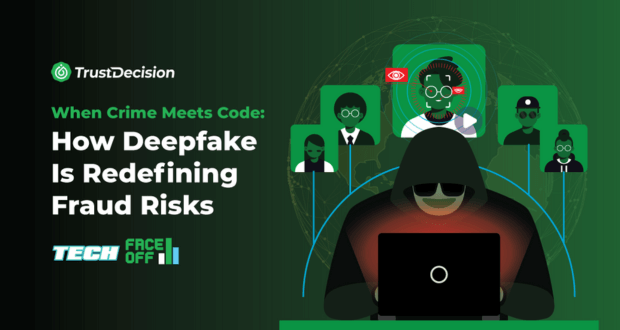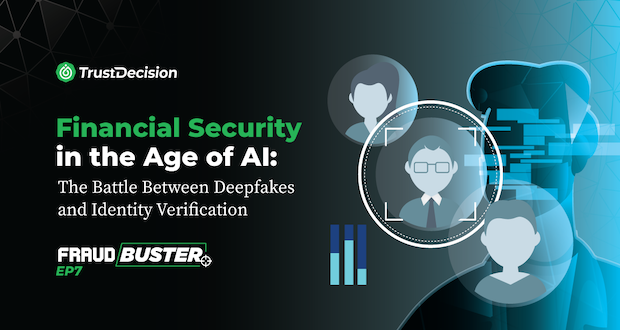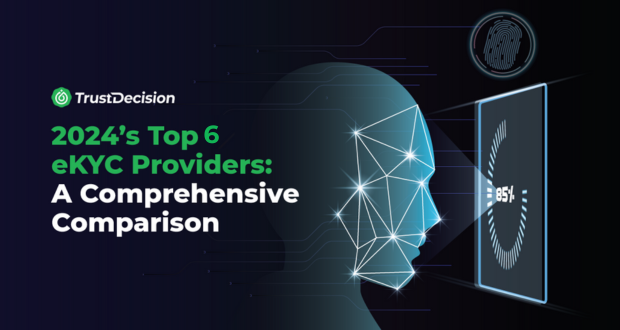Introduction
The rise of AI technologies has completely revolutionized industries from healthcare to entertainment, including the financial services industry. However, these advancements have also invited new risks and security challenges, particularly in the realm of eKYC . Specifically, Artificial Intelligence-Generated Content (AIGC) fraud in eKYC has emerged as a burgeoning threat for businesses. Identity fraud, identity theft, and deepfake technologies pose significant risks to business operations, reputation, and customer trust.
The Emergence of AI-Generated Identities
The Growing Threat
The flourishing digital economy of Indonesia serves as a prime example of a booming marketplace attracting the attention of fraudsters. Projected to grow by a massive 128 percent by 2027, it appears to be a lucrative hunting ground for scammers exploiting AIGC content. This content, which includes deepfake photos and videos, is used to bypass traditional identity verification measures. Fraudsters target specific areas within the digital customer onboarding journeys, posing severe financial and reputational risks for businesses.
The Deepfake Dilemma
Deepfake technology is the weapon of choice for these fraudsters. It allows them to create incredibly realistic images, videos and voice impersonations. Scammers can easily download public photos from social media profiles or corporate websites and synthesize deepfake content to commit identity fraud. Within the financial sector, deepfake has developed to complete eKYC through automatic video identification. High-profile cases have recently littered headlines with actors, executives, and public figures falling victim to these scams. They were duped by realistic fake content leading to significant losses, both financial and reputational.
Mitigating AIGC Fraud with eKYC: Advanced Solutions
Multi-Factor Authentication (MFA)
As identity theft and fraud continue to increase, businesses are turning to Multi-Factor Authentication (MFA) to bolster their defenses. By leveraging AI platforms to detect AI-generated identities before the eKYC verification process, the odds of successfully preventing identity theft significantly improve. Not only does MFA enhance security, but it also does so without compromising privacy or user experience.
One such example of MFA in action is a leading online payment platform that has successfully incorporated this solution to secure its customer’s accounts and transactions. By requiring a second form of identification, such as a unique code sent to the user's mobile device, they can thwart attempts of AIGC fraud, creating a more secure digital environment.
Liveness Detection
The war against sophisticated fraud calls for a lived experience. Liveness Detection is a crucial tool for verifying identities that may have been compromised. This technology detects signs of life during the verification process, preventing deepfake attacks effectively.
In the financial industry, a global bank is utilizing Liveness Detection to protect its customers. The bank’s mobile app utilizes this technology during login and transaction confirmations. This innovative approach has helped the bank prevent numerous deepfake attacks, ensuring the security of their customers' accounts.
OCR Document Verification
Optical Character Recognition (OCR) document verification is another formidable defense against AIGC fraudsters. The technology can swiftly and accurately extract and verify data from a wide range of documents. It facilitates fast and compliant onboarding processes, allowing businesses to meet their customer’s demands without sacrificing security.
A case in point is a major e-commerce company that has integrated OCR Document Verification in its customer onboarding process. The technology has significantly enhanced their ability to quickly and accurately verify new customer identities, reducing potential risks and improving customer experience.
Fairness and Bias Prevention
The key to ensuring the accuracy and fairness of verification technologies lies in using diverse data sets and conducting regular bias audits. Businesses must ensure their verification systems don’t inadvertently discriminate against certain groups. Regular bias audits and training with diverse datasets can help prevent such incidences.
A leading tech company has been at the forefront of implementing such measures in their facial recognition technology. By continually auditing and refining their algorithms, they have managed to mitigate bias in their systems, ensuring the technology is fair and accurate for all users, regardless of their ethnicity or gender.
In conclusion, businesses must stay proactive and continuously fine-tune their risk management strategies to combat the ever-evolving threat of AIGC fraud in eKYC. By integrating advanced solutions like MFA, Liveness Detection, OCR Document Verification, and conducting regular fairness and bias audits, businesses can fortify their defenses, ensuring a secure and trustworthy digital ecosystem.
TrustDecision’s Role in Combating Financial Fraud
In the ever-evolving landscape of digital identity verification, TrustDecision’s KYC++ solution stands as a beacon of innovation and security. Let’s delve into the components that fortify this cutting-edge suite:
The Components of TrustDecision’s Solution:
1. Optical Character Recognition (OCR)
TrustDecision’s OCR technology revolutionizes data extraction from identity documents. Swift and precise, it streamlines onboarding processes while maintaining high data accuracy. Whether it’s passports, driver’s licenses, or other crucial documents, our OCR ensures compliance without compromise.
2. Liveness Detection & Face Comparison - Real-Time Biometric Authentication
- Facial Liveness: TrustDecision’s algorithms scrutinize facial movements—blinks, head rotations—to verify physical presence during verification. Deepfake attacks stand no chance.
- Behavioral Liveness: User interactions (swipes, taps) add an extra layer of security.
- Face Comparison: Analyzing facial features to verify similarity and ensure that the person presenting the selfie matches the ID photo. Essentially, it’s a way to confirm identity based on visual cues.
3. Device Fingerprinting-Unveiling Hidden Connections
TrustDecision’s integrated device fingerprint technology is a game-changer:
- Unique Device ID: Detect anomalies by identifying devices. Fraudsters’ limited arsenal of devices becomes evident.
- Global Database: With 7 billion+ accumulated devices globally, we safeguard against digital hijacking and unauthorized control.
4. AI-Generated Content (AIGC) - Countering Deepfake Threats
- TrustDecision’s KYC++ shields against altered or manipulated images:
- Document forging
- Deepfakes
- AI-generated content (AIGC)
- 3D masks
- Photos/videos captured from other displays
- Printed materials
At TrustDecision, we pride ourselves on delivering cutting-edge solutions that redefine digital identity verification. Here’s why businesses worldwide choose us:
Our verification process yields results in a mere 1 second, ensuring swift and seamless user experiences. With over 95% accuracy in OCR (Optical Character Recognition), we extract and verify data with precision, minimizing errors. Our global reach extends to 13,000+ document types across 247 countries, and our proficiency in 138 languages empowers us to serve diverse clientele seamlessly. We adhere rigorously to GDPR (General Data Protection Regulation) and CCPA (California Consumer Privacy Act) guidelines, safeguarding data privacy and security. Finally, our universal API compatibility ensures smooth integration into existing systems, minimizing disruptions.
Conclusion
In the ever-evolving landscape of financial fraud, the threat posed by AIGC fraud in eKYC is significant. Businesses operate in an increasingly digital environment where the misuse of AI technology by fraudsters can lead to detrimental financial and reputational damages. However, the incorporation of advanced solutions such as Multi-Factor Authentication, Liveness Detection, OCR Document Verification, and bias prevention measures can fortify businesses' defenses against AI-generated identities.
Companies like TrustDecision are pioneering this field with innovative KYC++ solutions, offering businesses effective tools to combat AIGC fraud. As we press forward, it is vital for businesses to maintain vigilance, continuously adapt, and invest in advanced identity verification and fraud monitoring services. With the right strategies and partnerships, businesses can ensure the security of their digital identities, fostering a trustworthy and secure digital ecosystem.









.jpeg)




